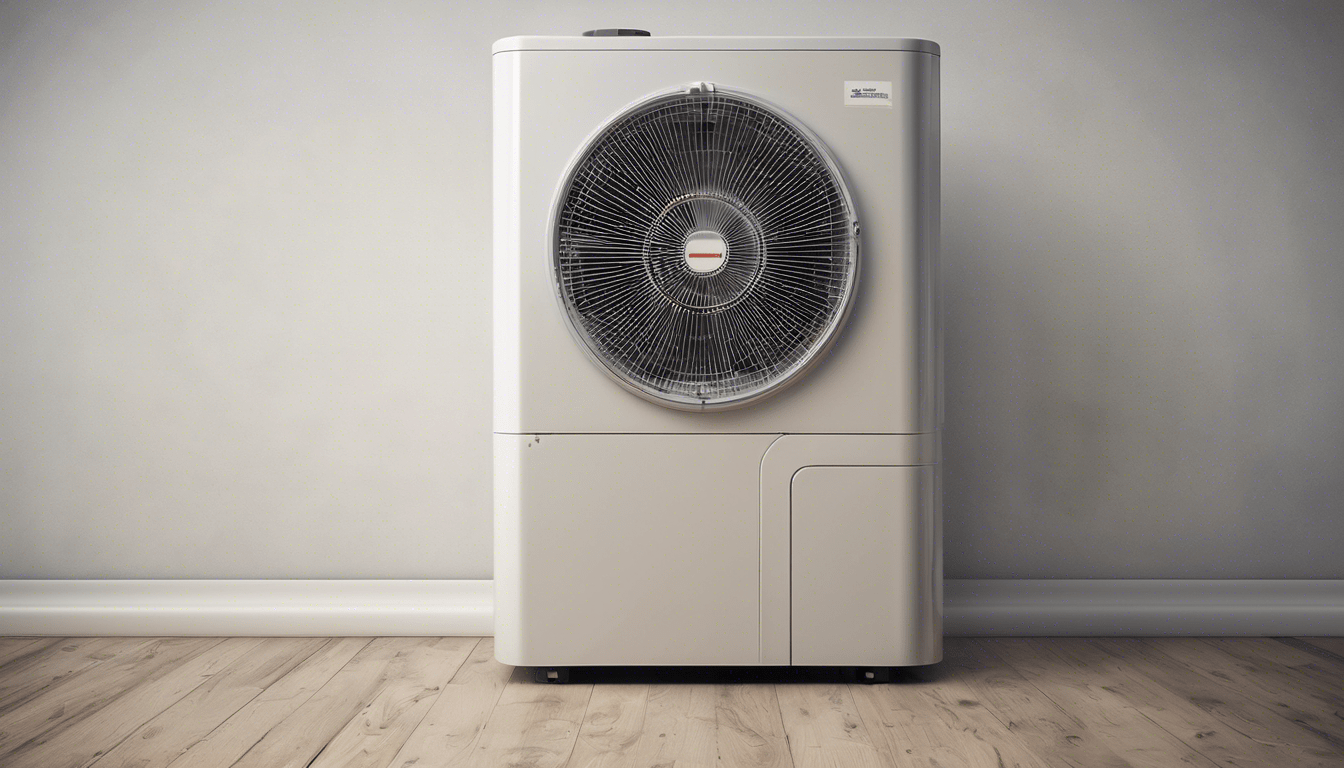Claiming £7,500 in UK heat pump grants offers a timely opportunity to upgrade your home’s heating system while saving money and reducing your carbon footprint. With the right information, eligibility can be straightforward, and the application process manageable. This guide provides a clear overview, helping you navigate the scheme confidently and maximize the benefits of your investment in a sustainable, cost-effective heating solution.
Overview of the £7,500 UK Heat Pump Grant Scheme
This £7,500 grant scheme is a significant government initiative designed to encourage UK households to install energy-efficient heat pumps. The aim is to reduce reliance on traditional heating methods and lower carbon emissions. Eligible applicants can receive financial assistance to cover a substantial portion of the installation cost, making heat pumps more accessible and affordable.
Also to read : Game-Changing Innovations: The Potential Impact of Recent Breakthroughs
To qualify for the grant, homeowners must meet specific eligibility criteria. Primarily, the scheme targets existing homes that currently use fossil fuel-based heating systems, such as gas or oil boilers. Properties must be located within England or parts of the UK where the scheme applies, and applicants should be the homeowner or a private landlord. Additionally, the property should meet certain energy efficiency standards to ensure the heat pump operates effectively.
The application window for the scheme is time-limited, typically opening for a set period or until allocated funds are exhausted. It is important for prospective applicants to act promptly to benefit from the grant before the window closes. Furthermore, the government outlines clear steps for registering interest, selecting certified installers, and submitting applications, ensuring a smooth process.
Have you seen this : Why you might need an architect for your loft conversion
Understanding the details of the grant scheme is crucial for homeowners considering upgrading to heat pumps. The government incentives for air source pumps can significantly reduce upfront costs, encouraging more households to make the switch to greener heating solutions.
Eligibility Criteria and Qualification Process
Understanding the eligibility criteria for government incentives for air source pumps is essential to benefit from available grants effectively. To qualify, the property must meet specific conditions that typically focus on energy efficiency and property type. Commonly, eligible properties include owner-occupied homes, and in some cases, certain types of rental properties may qualify if the landlord consents to the installation. Income thresholds might apply, prioritizing households with lower income to ensure the grants support those who need financial assistance most.
The property itself must usually meet minimum energy efficiency standards. This can involve a prior assessment confirming the insulation quality and overall energy performance. The rationale is to maximize the environmental benefits of installing an air source pump by reducing existing energy wastage. Energy Performance Certificates (EPCs) often serve as proof of eligibility, verifying that the home can efficiently utilize the heat pump technology.
Applying for such government incentives involves gathering several key documents. Applicants should prepare proof of property ownership, their income details (if applicable), and official energy assessments or EPCs. These documents substantiate the eligibility claims and enable the processing authority to evaluate the qualification fairly. Missing or incomplete applications frequently lead to delays or rejection, so accuracy in submission is crucial.
Navigating these prerequisites may seem daunting, but understanding them clearly can streamline the process. Consulting dedicated resources about government incentives for air source pumps can also provide updated guidelines and practical advice tailored to your situation. By meeting these eligibility benchmarks, homeowners can access valuable financial support to improve their property’s energy efficiency while reducing heating costs.
Step-by-Step Guide to Claiming the Grant
Understanding how to determine eligibility is the crucial first step when applying for government grants for air source pumps. Eligibility often depends on factors such as the type of property, installation location, and previous grants received. Collecting all necessary documents—proof of residency, installation quotations, and energy bills—ensures a smooth application process.
When completing the application forms, pay close attention to the specific requirements. Accurately provide details about the air source heat pump system, its capacity, and installer credentials. This precision minimizes the risk of delays caused by incomplete or incorrect information.
For submission, applicants typically have multiple channels, including online portals, email, or postal methods. Processing times can vary, but applicants should generally expect a response within a few weeks. Staying informed about application status and following up if necessary helps keep the process on track.
Choosing and Installing a Heat Pump System
Selecting the right heat pump system is crucial to maximize energy savings and qualify for government support. Among the types, air-source and ground-source heat pumps are both eligible for the grant, each offering distinct benefits. Air-source pumps extract heat from the outside air, performing efficiently in moderate climates, while ground-source pumps draw heat from the earth, providing consistent output regardless of air temperature.
When it comes to installation, working with recommended installers is vital. Always verify credentials through certification schemes recognized by the government to ensure your installer meets strict quality and safety standards. This not only guarantees a reliable installation but also ensures compliance with grant eligibility criteria.
Installation standards are equally important. Adhering to guidelines that promote optimal system efficiency involves proper sizing, positioning, and integration with your existing heating infrastructure. Poor installation can lead to decreased performance and negate expected savings, so prioritize thorough assessments and follow-up inspections. For clarity on specific financial supports, it’s worthwhile to explore current government incentives for air source pumps.
Financial and Environmental Benefits of Heat Pumps
Understanding the financial benefits of heat pumps reveals why they are increasingly popular. By efficiently transferring heat instead of generating it, heat pumps achieve significant long-term energy savings, often slashing heating bills by up to 50% compared to conventional heating systems. This reduced energy consumption translates into lower utility costs over the life of the system, making the initial investment more cost-effective in the long run.
From an environmental standpoint, heat pumps contribute to a substantial carbon footprint reduction. They operate on electricity but use ambient air as a heat source, which means they emit far fewer greenhouse gases than fossil fuel-based heating methods. This results in cleaner air and a smaller environmental impact, aligning with global efforts to combat climate change.
Beyond the core financial and eco benefits, homeowners may also qualify for additional incentives or rebates. Various government schemes support the transition to renewable heating, helping offset installation costs. For example, by exploring government incentives for air source pumps, users can access grants or rebates that further enhance the affordability of heat pumps.
Together, these factors underline the multiple advantages of adopting heat pumps not only are they kinder to the planet, but they provide homeowners with concrete savings and financial support options to ease the transition to sustainable heating solutions.
Additional Support and Resources
Discovering government incentives for air source pumps can significantly ease the financial commitment of installing heat pumps. These programs often provide grants or rebates that reduce upfront costs. For instance, many government grant portals offer detailed application guides to help homeowners navigate the process smoothly. Taking advantage of these resources can maximize your savings and make adopting heat pump technology more affordable.
When planning your heat pump installation, it’s essential to seek technical advice and customer support from reputable sources. Many industry organizations have dedicated contact points where you can ask specific questions about system compatibility, efficiency ratings, and installation best practices. Accessing expert guidance ensures you select a heat pump model that suits your home and climate conditions perfectly.
To optimize benefits, focus on tips such as accurately sizing your heat pump system and regularly maintaining it for peak performance. Choosing models with high seasonal efficiency ratings will lower energy bills and improve environmental impact. Combining these strategies with available government incentives for air source pumps can transform your heating and cooling experience while saving money.
For further information on financial support and how to apply for available grants, visit resources outlining government incentives for air source pumps. These comprehensive guides are valuable tools that empower consumers to make informed decisions confidently.
Troubleshooting Common Challenges in the Application Process
Applying for grants, especially those related to air source pumps, often involves navigating several common challenges. One frequent issue is overcoming technical or eligibility uncertainties. Applicants may find it confusing to determine if their property meets the specific criteria established by government programs. To address this, carefully reviewing official documentation and seeking clarity from authorized sources can be invaluable. This ensures that your application aligns precisely with the eligibility requirements, preventing time-consuming rejections.
Delays or issues with grants processing are another obstacle many face. Processing times can extend due to high demand or incomplete submissions. Maintaining detailed records of all application materials and promptly responding to any requests for additional information can help minimize these delays. Staying proactive and organized facilitates smoother progress through the process.
Ensuring compliance with all government guidelines is crucial to avoid complications. This means thoroughly understanding construction regulations, energy efficiency standards, and application procedures specific to the air source pumps grants. Compliant applications not only increase the likelihood of approval but also prevent costly setbacks during installation.
For further details on how to navigate these challenges and seize available financial aid, exploring resources on government incentives for air source pumps can provide helpful guidance tailored to your situation.
Extracting the Greatest Value from Your Heat Pump Investment
Maximizing the benefits of your heat pump begins with regular maintenance. Ensuring that filters are cleaned or replaced periodically improves airflow and system efficiency. It is equally important to schedule professional inspections at least once a year to check refrigerant levels and mechanical components. This proactive approach prevents costly breakdowns and maintains the heat pump’s performance, which directly impacts your energy consumption and savings.
Controlling your heating system effectively is another crucial factor. Utilizing programmable thermostats or smart controls allows you to tailor the heat pump’s operation to your daily schedule. This precision reduces unnecessary heating, enabling you to lower your utility bills over time. Additionally, integrating zoning controls can direct heat where it is needed most, enhancing comfort while avoiding wasted energy.
Looking ahead, the potential future savings extend beyond immediate bills. Heat pumps significantly reduce carbon emissions compared to traditional heating, contributing positively to environmental goals. With increasing awareness and evolving government regulations, investing in this technology can also unlock financial benefits through schemes like government incentives for air source pumps. These incentives can lessen the upfront cost and improve long-term affordability, making the heat pump not only an environmentally sound choice but a financially smart one as well.
By combining diligent maintenance, strategic control, and awareness of available support, you ensure your heat pump investment yields maximum efficiency and comfort for years to come.











